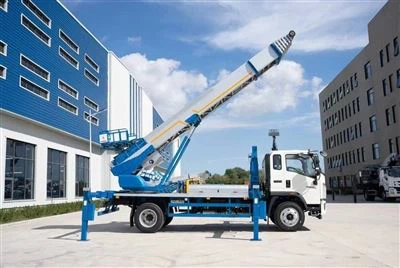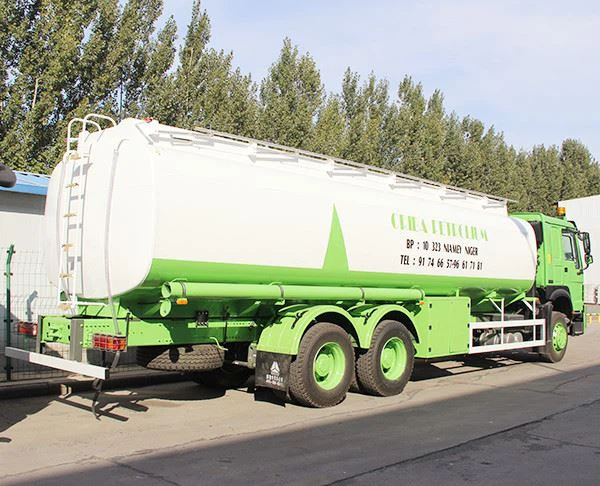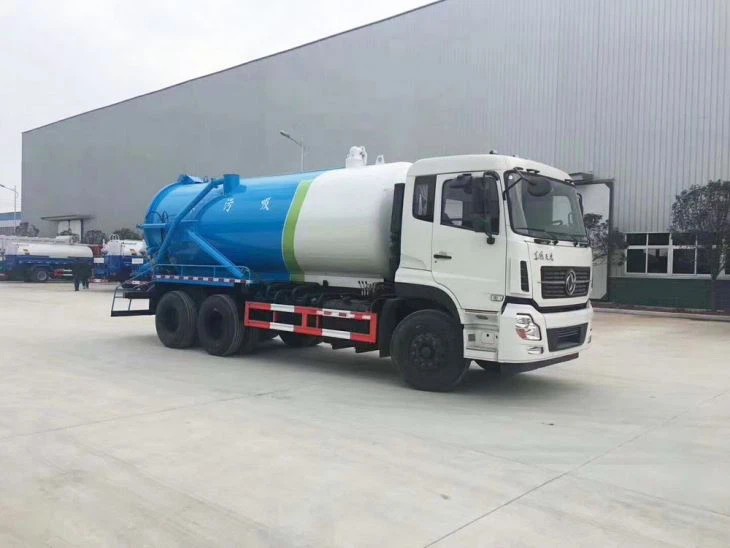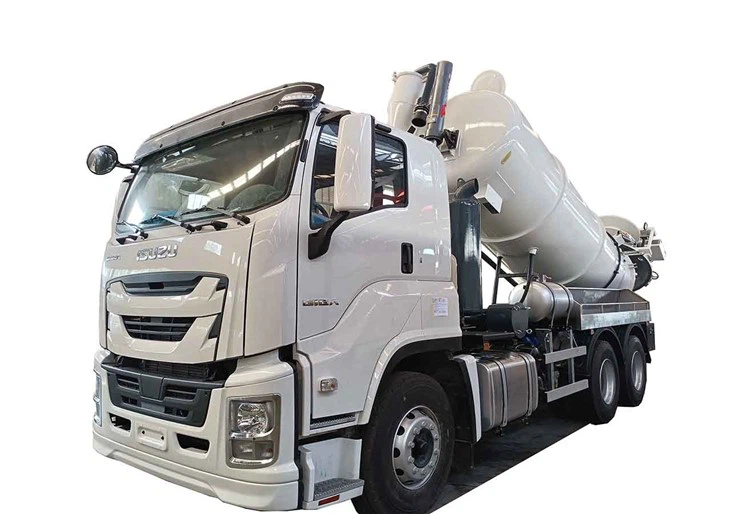Asphalt delivery trucks play a crucial role in the construction and road maintenance industry, facilitating the efficient transport of asphalt to various job sites. Understanding the types, features, and operational costs of asphalt delivery trucks can empower construction professionals and enthusiasts alike. In this comprehensive guide, we will delve into everything related to asphalt delivery trucks, from their design to their significance in modern-day projects.
Understanding Asphalt Delivery Trucks
Asphalt delivery trucks are specialized vehicles designed to transport hot asphalt mix from production facilities to construction sites. The trucks are equipped with features that maintain the temperature and quality of asphalt during transport.
Types of Asphalt Delivery Trucks
There are several types of asphalt delivery trucks, each suited for different applications. Here are some of the most common types:
- Dump Trucks: These are the most common type of asphalt delivery trucks. They have a hydraulically operated bed that allows for easy unloading of asphalt.
- Live Bottom Trucks: These trucks come with a conveyor belt system, making the unloading process efficient and controlled.
- Tankers: Asphalt tankers are used to transport liquid asphalt and have specialized heating systems to keep the material at optimal temperatures.
- Specialized Asphalt Trucks: These trucks are built specifically for certain projects, featuring tailored components for maximizing usability with specific kinds of asphalt.
Key Features of Asphalt Delivery Trucks
| Feature | Description |
|---|---|
| Insulated Bodies | Insulation helps maintain the temperature of the asphalt during transport. |
| Heating Systems | Some trucks have built-in heating systems to keep the asphalt at the required temperature. |
| Anti-Slip Floors | Prevent accidents during loading and unloading, ensuring safety on the job site. |
| Durable Materials | Construction from high-strength materials to withstand the rigors of transporting heavy asphalt loads. |
Importance of Asphalt Delivery Trucks in Construction
The importance of asphalt delivery trucks cannot be overstated. They are fundamental to road construction and repair projects. Here’s why they matter:
Efficient Transportation
Asphalt delivery trucks are designed to transport asphalt quickly, allowing for timely project completion. Delays in delivery can result in increased costs and prolonged project timelines.
Quality Maintenance
By maintaining temperature and quality during transportation, asphalt delivery trucks ensure that the final product adheres well to surfaces, enhancing durability and longevity.
Versatility
Asphalt delivery trucks can handle various types of asphalt mixtures, including hot mix asphalt (HMA) and warm mix asphalt (WMA), catering to different project needs.
Choosing the Right Asphalt Delivery Truck
Factors to Consider
When selecting an asphalt delivery truck, it is essential to consider several factors:
- Capacity: Ensure that the truck’s capacity matches the project’s requirements.
- Type of Asphalt: Match the truck type to the kind of asphalt being used, whether it’s hot mix, warm mix, or liquid asphalt.
- Terrain: Consider the terrain of the job site; certain trucks are better suited for rough or uneven ground.
- Budget: Assess the upfront costs, maintenance requirements, and fuel efficiency when making a decision.
Practical Examples
Here are examples of scenarios demonstrating the selection of asphalt delivery trucks:

- For a large highway project needing quick asphalt delivery, a dump truck with a high capacity and fast unloading would be ideal.
- For residential paving projects involving tighter spaces, a live bottom truck may be preferred for its precise unloading capabilities.
Operational Costs of Asphalt Delivery Trucks
Understanding the operational costs associated with asphalt delivery trucks is vital for budgeting and financial planning. Here’s a breakdown of potential costs:
Fuel Costs
Fuel is one of the most significant running costs. The efficiency of the truck and fuel prices will greatly influence overall expenses.
Maintenance Costs
Regular maintenance ensures the longevity of the truck. This may include oil changes, tire replacements, and inspections, which can add up over time.
Insurance and Licensing
As with any vehicle, insurance is necessary. Compliance with local laws regarding licensing and permits will incur additional costs.
Best Practices for Operating Asphalt Delivery Trucks
Pre-Trip Inspections
Conducting thorough pre-trip inspections can help identify potential issues before they turn into more severe problems.
Checklist for Pre-Trip Inspections
- Inspect tires for wear and proper inflation.
- Check fluid levels (oil, brake fluid, etc.).
- Test the heating system to ensure it operates efficiently.
- Ensure all safety and operational features are functioning.
Effective Loading and Unloading
Proper procedures for loading and unloading asphalt help maintain quality and enhance safety. Here are some tips:
- Ensure the truck bed is clean and free from debris before loading.
- Load asphalt evenly to prevent shifting during transit.
- Unloading should be conducted slowly; utilize gravity to speed up the unloading process without rushing.
Driving Techniques
Driving an asphalt delivery truck requires special skills. Here are driving techniques to ensure safety and efficiency:
- Drive at moderate speeds, especially on rough terrain.
- Maintain a safe distance from other vehicles during transport.
- Be aware of road conditions and adjust driving accordingly.
Safety Considerations When Using Asphalt Delivery Trucks
Importance of Safety Gear
Wearing proper safety gear is essential for all workers involved in the loading, unloading, and transport of asphalt. Here’s what to include:
- Hard hats to protect against head injuries.
- High-visibility clothing to ensure visibility on job sites.
- Gloves to protect hands from hot asphalt.
- Steel-toed boots for foot protection.
Training Requirements
Training for operators is critical to ensure safe and efficient operation of asphalt delivery trucks. Companies should provide comprehensive training sessions that cover:
- Understanding truck controls and features.
- Best practices for loading and unloading asphalt.
- Safety protocols specific to asphalt delivery and handling.
Future Trends in Asphalt Delivery Trucks
The future of asphalt delivery trucks is being shaped by technological advancements and evolving industry demands. Here are some anticipated trends:
Increased Automation
As technology advances, we may see a rise in automated asphalt delivery trucks. This could lead to improved efficiency and reduced human error.
Eco-Friendly Innovations
With growing concerns about environmental impact, more manufacturers are focusing on creating sustainable asphalt solutions, including trucks designed to minimize emissions.
Telematics Integration
Telematics systems that track vehicle performance, GPS positioning, and maintenance needs are becoming increasingly common, allowing fleet managers to enhance operational efficiency.

Frequently Asked Questions (FAQ)
1. What is the average capacity of an asphalt delivery truck?
The average capacity of asphalt delivery trucks varies but typically ranges from 10 to 20 tons. The specific capacity often depends on the truck type and manufacturer.
2. How do I maintain my asphalt delivery truck?
Regular maintenance includes frequent inspections, oil changes, tire checks, and ensuring the heating systems are functional. Following the manufacturer’s maintenance schedule is essential for longevity.

3. Can asphalt delivery trucks transport other materials?
While asphalt delivery trucks are primarily designed for asphalt, some can transport other materials, such as gravel or sand, depending on their configuration. However, proper cleaning is necessary to avoid contamination.
4. What is the ideal temperature to transport asphalt?
The ideal temperature for transporting hot mix asphalt is typically between 275°F to 300°F (135°C to 150°C) to ensure proper workability upon arrival at the job site.
5. Are there regulations regarding asphalt delivery trucks?
Yes, there are various local, state, and federal regulations regarding the operation of asphalt delivery trucks. Operators must comply with weight limits, safety standards, and environmental regulations.
6. What features should I look for in an asphalt delivery truck?
Look for trucks with insulated bodies, effective heating systems, suitable capacity, and safety features such as anti-slip surfaces and advanced braking systems.




